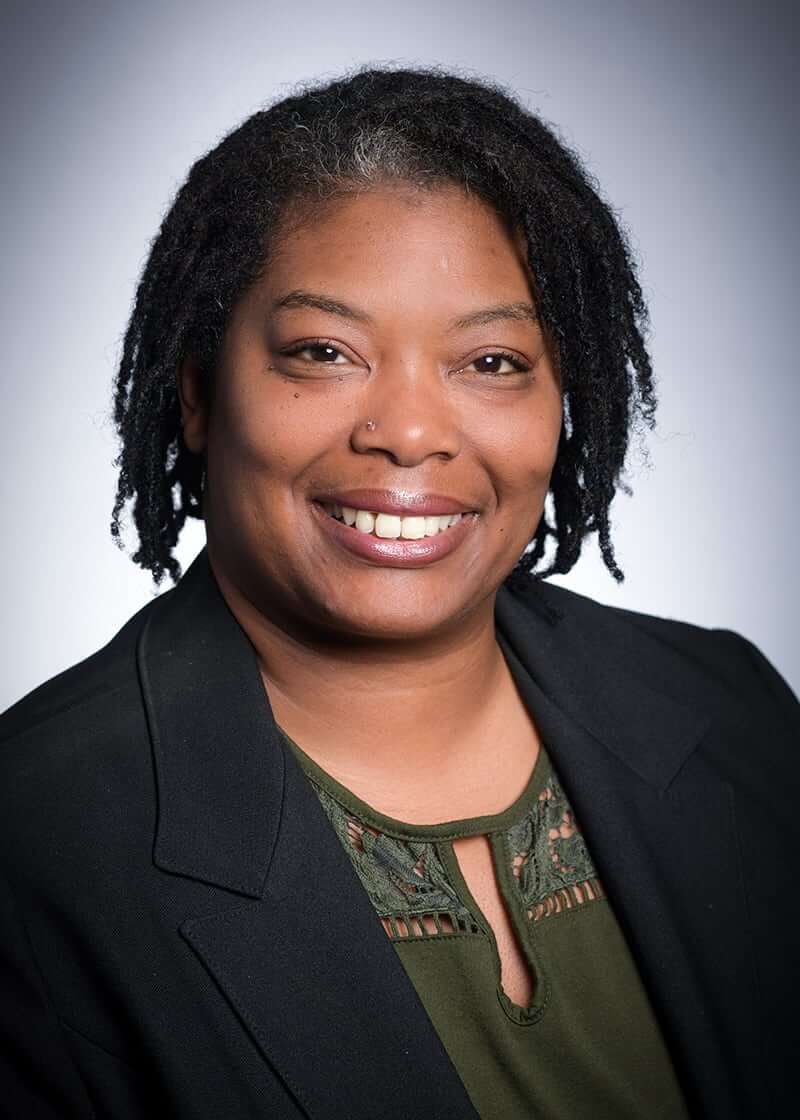January 2024
Tamika L. Smith, PhD tamsmith@uab.eduAssistant Professor, Health BehaviorProject Director, Center for the Study of Community Health
What brought you to the UAB School of Public Health?
I began my career as a social worker for the state of Alabama. In doing this work, I felt that I wasn’t doing enough to improve the lives of the families that I serve. I decided to get my PhD, and the UAB School of Public Health was where I wanted to gain the skills and knowledge to do the work that I wanted. During my studies and after graduation, I worked and continue to work at the Center for the Study of Community Health. My work in the Center and teaching as a credentialed course instructor led me to a faculty position in the Department of Health Behavior.
What is the broad focus of your research?
My research interest includes understanding risk and protective factors as it relates to sexual health behavior of minority populations. I am specifically interested in intervention development that reduces HIV and STI acquisition, and through this work, I am starting to include HIV treatment as prevention in people living with HIV.
Where did you receive your training and degrees?
I began my education at The University of Alabama, where I received my BS in Human Environmental Science in 1999. After some time working in the field, I went back to school and graduated in 2011 with my master’s in counseling psychology at The University of West Alabama. Immediately after completing my master’s degree, I entered the PhD in Health Behavior program at UAB and earned a doctoral degree in health education and promotion in 2015.
What is the most exciting project you are currently working on?
The most exciting project that I am working on right now is the “Understanding the Continuum of HIV Care for Aging People Living with HIV during the COVID-19 National Shutdown” study. This project was funded through the Deep South Resource Center for Minority Aging Research (RCMAR). We work with a local AIDS-serving organization to develop a systematic plan for responding to all man-made and natural disasters such as COVID-19 that may cause a disruption in HIV/STI care and services. We will also speak with people living with HIV and the workers who serve them to understand their lived experiences during that time.
What is your favorite self-authored manuscript?
My favorite was a paper that discussed how the research team developed and implemented an interdisciplinary service-learning curriculum. The entire project, including writing about the process was really enjoyable. The manuscript was never published, but I did enjoy the work.
What professional accomplishment are you most proud of so far in your career?
Getting the Excellence in Teaching Award is the professional accomplishment of which I am most proud. I love teaching our School of Public Health students. The classroom is where I have the liveliest discussions, and it’s where students get to learn and ask questions. Earning that award makes me feel that not only am I enjoying the class time, but the students are enjoying it as well.
What is the coolest training or program you've been a part of, or your favorite conference you've attended?
My favorite conference is the U.S. Conference on HIV/AIDS presented by NMAC (formerly the National Minority AIDS Council). The conference is very community-based and focuses on addressing health equity and the fight against AIDS. I always make great connections and learn about patient-centered strategies that are used to fight the fight.
What kind of research would you like to be doing that you haven’t yet had the opportunity to do?
I am doing what I love, which is HIV/STI-focused behavioral research. Every now and then, I get the urge to understand the clinical/biological aspect of HIV and its effects on the physical body, but it doesn't last long.
If you had the funding to answer any one research question, what would that question be?
I would love to know what truly drives sexual behavior decisions that lead to increased risk of HIV/STI acquisitions and unplanned pregnancies.
If you weren’t in academia, what would your career be?
I would be designing on HGTV.
